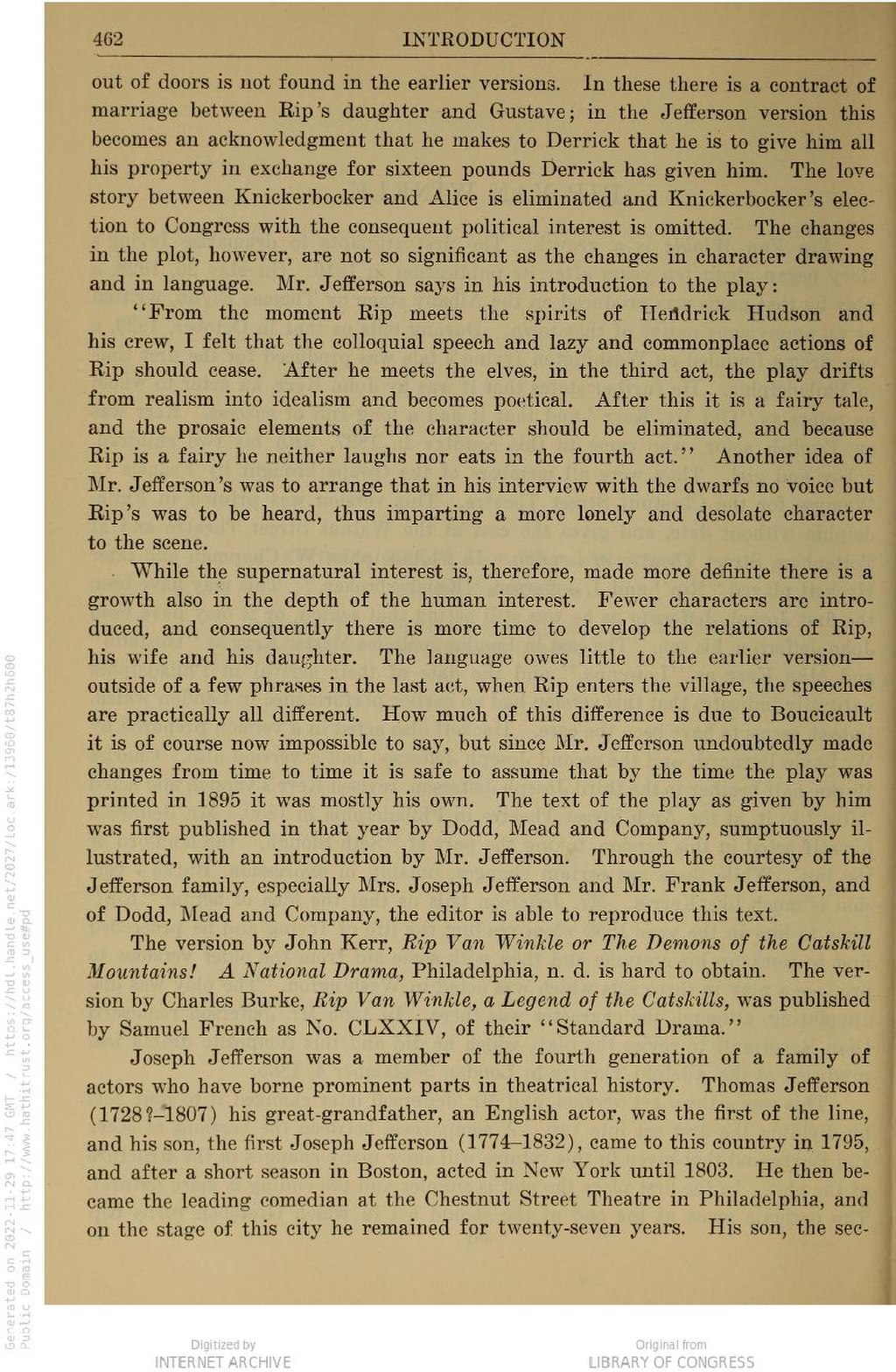out of doors is not found in the earlier versions. In these there is a contract of marriage between Rip's daughter and Gustave; in the Jefferson version this becomes an acknowledgment that he makes to Derrick that he is to give him all his property in exchange for sixteen pounds Derrick has given him. The love story between Knickerbocker and Alice is eliminated and Knickerbocker's election to Congress with the consequent political interest is omitted. The changes in the plot, however, are not so significant as the changes in character drawing and in language. Mr. Jefferson says in his introduction to the play:
"From the moment Rip meets the spirits of Hendrick Hudson and his crew, I felt that the colloquial speech and lazy and commonplace actions of Rip should cease. After he meets the elves, in the third act, the play drifts from realism into idealism and becomes poetical. After this it is a fairy tale, and the prosaic elements of the character should be eliminated, and because Rip is a fairy he neither laughs nor eats in the fourth act." Another idea of Mr. Jefferson's was to arrange that in his interview with the dwarfs no voice but Rip's was to be heard, thus imparting a more lonely and desolate character to the scene.
While the supernatural interest is, therefore, made more definite there is a growth also in the depth of the human interest. Fewer characters are introduced, and consequently there is more time to develop the relations of Rip, his wife and his daughter. The language owes little to the earlier version—outside of a few phrases in the last act, when Rip enters the village, the speeches are practically all different. How much of this difference is due to Boucicault it is of course now impossible to say, but since Mr. Jefferson undoubtedly made changes from time to time it is safe to assume that by the time the play was printed in 1895 it was mostly his own. The text of the play as given by him was first published in that year by Dodd, Mead and Company, sumptuously illustrated, with an introduction by Mr. Jefferson. Through the courtesy of the Jefferson family, especially Mrs. Joseph Jefferson and Mr. Frank Jefferson, and of Dodd, Mead and Company, the editor is able to reproduce this text.
The version by John Kerr, Rip Van Winkle or The Demons of the Catskill Mountains! A National Drama, Philadelphia, n. d. is hard to obtain. The version by Charles Burke, Rip Van Winkle, a Legend of the Catskills, was published by Samuel French as No. CLXXIV, of their "Standard Drama."
Joseph Jefferson was a member of the fourth generation of a family of actors who have borne prominent parts in theatrical history. Thomas Jefferson (1728?-1807) his great-grandfather, an English actor, was the first of the line, and his son, the first Joseph Jefferson (1774-1832), came to this country in 1795, and after a short season in Boston, acted in New York until 1803. He then became the leading comedian at the Chestnut Street Theatre in Philadelphia, and on the stage of this city he remained for twenty-seven years. His son, the sec-
